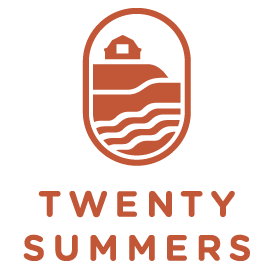$20 Suggested Donation
Truro, Cold Storage Beach, c. 1905
We invite you to a conversation that bridges architecture, marine life, and the industrial heritage of Cape Cod, while highlighting the important historical connections between Portugal and the Cape. This event will feature André Tavares, Professor of Architecture at the University of Porto, whose book, Architecture Follows Fish: An Amphibious History of the North Atlantic [MIT University Press, 2024], explores how fishing practices an marine life have shaped coastal architecture and landscapes. Supported by a European Union grant, Tavares’s work shows how fishing industries created the harbors, processing facilities and infrastructure that defined communities like Provincetown and Truro. His research delve into the “architecture of fish houses and drying racks that once punctuated the landscape, showcasing how the region’s fishing practices left an indelible mark on its built environment and ecological systems.
The discussion will be enriched by the participation of Scott Landry, Christy Anderson, and Morgan O’Hara. Together, they’ll delve into topics like the design of fish houses and harbor facilities on Cape Cod, the role of architecture in sustaining fish communities, and the ecological challenges of balancing tradition with sustainability.
André Tavares, born in 1976, is an architect and runs Dafne Editora, a small architectural publishing house in Porto. He writes regularly and is the author of several books on the relation between architectural culture and the public sphere. He often addresses the international circulation of knowledge among Portuguese-speaking architects.
Christy Anderson studies and teaches the history of architecture. While most of her work focuses on the buildings of early modern Europe, her projects extend broadly across oceans and into contemporary design. A full-time member of the Department of Art History at the University of Toronto, and a member of the faculty at Daniels, she enjoys teaching both non-specialist undergraduates and students in the professional programs. Her most recent project is a study of the ship as an architectural type, which explores the spaces and environments that connect the sea to the shore. Ships facilitated global exchange and moved goods, people, and the natural world from port to port. The environment of the sea, the technology of design, the movement of commodities, and the shaping of cities all centre on the ship as mobile architecture. In 2010, Christy was named a John Simon Guggenheim Fellow in the field of architecture, planning and design. She received her PhD from MIT in the School of Architecture, and was a senior research fellow at Worcester College, Oxford University.
Scott Landry worked as a naturalist in the Atlantic and Pacific oceans and particularly within the Gulf of Maine for many years before joining the CCS Whale Disentanglement Team more than 20 years ago. In addition to being a First Responder for the team, Scott conducts research on the problem of entanglement. Scott holds a B.A. degree in Anthropology from the University of Massachusetts and a Graduate Certificate in Science Illustration from the University of California-Santa Cruz.
Morgan O’Hara is a cultural historian of the built environment. She has worked at MASS Design Group since 2018, where she supports the Public Memory and Memorials Lab through research, engagement, and interpretation. Her backgrounds in cultural anthropology, public history, and collaborative design have informed her approach to socio-spatial research to develop human-centered histories of built spaces and infrastructure. For the Fringe Cities project, Morgan conducted longitudinal analyses of small cities in the United States that participated in mid-century urban renewal, and while at the Hudson Valley Office, she was embedded in the public engagement work necessary to craft meaningful community design solutions in Poughkeepsie. Her passion lies in elevating creative and community-driven expressions of lesser-known histories in public space. Morgan studied anthropology at Reed College, graduated from Columbia with a Masters in Historic Preservation, and intermittently co-teaches Studio II in Historic Preservation at Columbia GSAPP.






